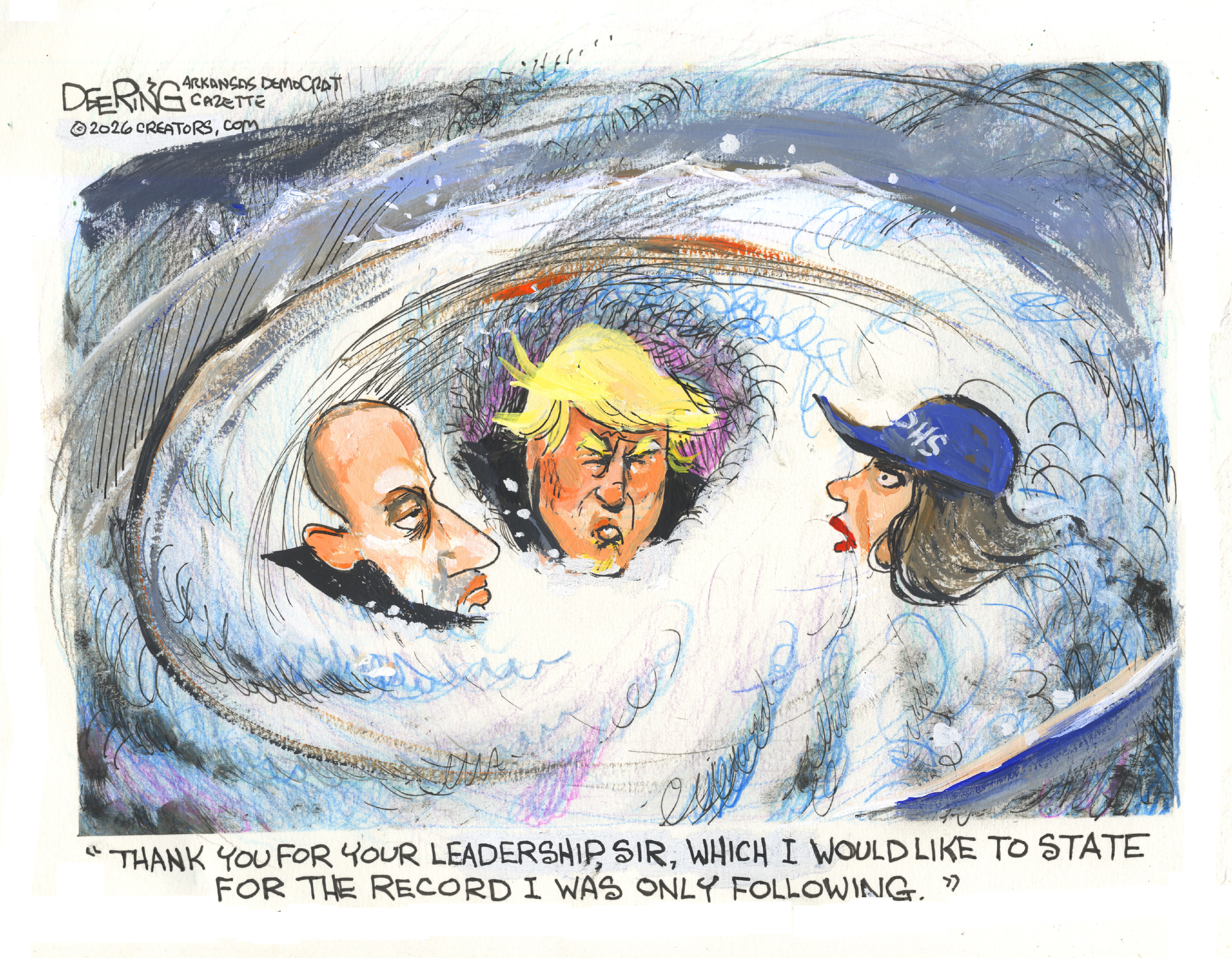Washington: A Life by Ron Chernow
Chernow's 904-page biography is “expertly narrated and full of remarkable detail.”
A free daily email with the biggest news stories of the day – and the best features from TheWeek.com
You are now subscribed
Your newsletter sign-up was successful
(Penguin Press, 904 pages, $40)
Few subjects hold greater fascination for biographers than George Washington, said Jill Lepore in The New Yorker.
In this “prodigious” new life of the famously taciturn father of our country, Ron Chernow spends 904 pages attempting to read the great man’s mind. Yet the book, though “expertly narrated and full of remarkable detail,” too often builds its portrait from sheer speculation. Though historians know “almost nothing” about Washington’s mother, for instance, Chernow manages to create a running theme about how young George was shaped by her cold, domineering ways.
The Week
Escape your echo chamber. Get the facts behind the news, plus analysis from multiple perspectives.

Sign up for The Week's Free Newsletters
From our morning news briefing to a weekly Good News Newsletter, get the best of The Week delivered directly to your inbox.
From our morning news briefing to a weekly Good News Newsletter, get the best of The Week delivered directly to your inbox.
To be fair, Chernow’s method is never “overly psychoanalytical,” said Janet Maslin in The New York Times. He quickly leaves Washington’s childhood to explore the Virginian’s rise to fame during the French and Indian War, when the “sharp-elbowed prodigy” fought for the British. During the Revolutionary War, Washington’s role extended beyond the battlefield. He managed his patrons in the new Congress as carefully as he did his own troops, and in many ways his “proud, stoical example mattered more than any individual battle could.” Yet the best parts of Chernow’s book are when he allows the reader to peek behind that facade, said Jeff Labrecque in Entertainment Weekly. “He makes excellent use of Washington’s own voice—the man’s angry letters are like thunderbolts.”
Nothing provoked Washington’s “legendary rage” more than his being accused of a base motive, said Andrew Cayton in The New York Times. That telling “prickliness,” more than actual modesty, explains the show of reluctance he made before accepting his election as president. Once in office, Washington appeared wary of taking sides, often playing one ambitious underling against another. He seems, in retrospect, to have been a “profoundly insecure” man. Though Chernow clearly admires Washington’s achievements as a general and a statesman, most readers will close this book with a diminished opinion of America’s first president.
A free daily email with the biggest news stories of the day – and the best features from TheWeek.com
-
 Political cartoons for February 8
Political cartoons for February 8Cartoons Sunday’s political cartoons include going down the drain, American history, and more
-
 Touring the vineyards of southern Bolivia
Touring the vineyards of southern BoliviaThe Week Recommends Strongly reminiscent of Andalusia, these vineyards cut deep into the country’s southwest
-
 American empire: a history of US imperial expansion
American empire: a history of US imperial expansionDonald Trump’s 21st century take on the Monroe Doctrine harks back to an earlier era of US interference in Latin America
-
Also of interest...in picture books for grown-ups
feature How About Never—Is Never Good for You?; The Undertaking of Lily Chen; Meanwhile, in San Francisco; The Portlandia Activity Book
-
Author of the week: Karen Russell
feature Karen Russell could use a rest.
-
The Double Life of Paul de Man by Evelyn Barish
feature Evelyn Barish “has an amazing tale to tell” about the Belgian-born intellectual who enthralled a generation of students and academic colleagues.
-
Book of the week: Flash Boys: A Wall Street Revolt by Michael Lewis
feature Michael Lewis's description of how high-frequency traders use lightning-fast computers to their advantage is “guaranteed to make blood boil.”
-
Also of interest...in creative rebellion
feature A Man Called Destruction; Rebel Music; American Fun; The Scarlet Sisters
-
Author of the week: Susanna Kaysen
feature For a famous memoirist, Susanna Kaysen is highly ambivalent about sharing details about her life.
-
You Must Remember This: Life and Style in Hollywood’s Golden Age by Robert Wagner
feature Robert Wagner “seems to have known anybody who was anybody in Hollywood.”
-
Book of the week: Astoria: John Jacob Astor and Thomas Jefferson’s Lost Pacific Empire by Peter Stark
feature The tale of Astoria’s rise and fall turns out to be “as exciting as anything in American history.”